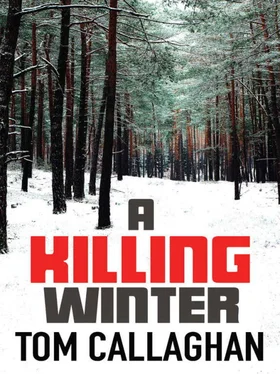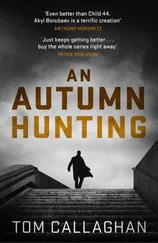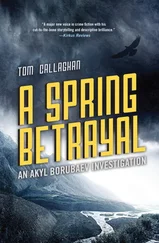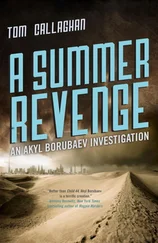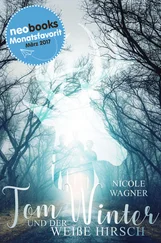Until the day Chinara came back from the hospital.
I knew it was bad from the way she thrust a glass of vodka into my hand before I could sit down, wouldn’t look at me, stared out of the window at the play area below. The rusted slide and climbing frames had been embedded in concrete, but any metal parts that could be stripped had long since disappeared. It looked like some ancient skeleton half unearthed and left to bleach. But the children still found a way to play there – tag or hide and seek – living in the moment, not worrying about crime or where their next meal would come from.
When she finally spoke, it was almost a whisper, so I had to strain to hear.
‘They say it’s a growth. In my right breast. Cancer.’
The vodka seared the back of my throat; I felt anger, confusion and finally fear. Years of visiting apartments at all hours, saying the facts that no one wanted to hear, watching the reactions of others to unexpected death: none of it had prepared me for when death picked the locks and tiptoed into my home.
‘They must be wrong. We’ll get a second opinion. The X-rays must have been mislabelled, it happens all the time… they must be wrong.’
Chinara shook her head, and the curtain of long black hair folded back on itself like a crow’s wing. She still didn’t look at me, but continued to stare out over the ravaged playground. I wanted to hug her, shake her, anything to make this all go away.
‘But what if they’re not?’
Her tone was almost resigned, even worried that I might blame her for being sick.
‘They’re wrong, I’m sure. You’ve never even smoked. We ought to go to Moscow, see specialists. I’ll ask about emergency leave tomorrow.’
‘And how would we pay them? On what you earn? With what we’ve saved?’
I didn’t speak. I couldn’t catch my breath; my heart jerked and kicked in my chest like a terrified animal. I could call in favours from all over town, from other cops, from politicians I’d helped out of a jam, even mafia I’d dealt with. But there was no negotiating with the third person who had just joined us in the room.
‘I saw the X-rays. The tumours. A lot of them. The doctor said he’d stopped counting.’
The sunlight in the room was very bright, so strong my eyes watered. I could hear the children in the park calling out to each other, shrieking with laughter, and I wanted to open the window and yell at them to be quiet. Because my world was collapsing in on itself, because I was afraid, because it seemed so unfair that anyone in the world should be happy.
‘They want to operate this week. Remove what they can.’
I sat down beside her, my arm around her shoulders. I tried to turn her face towards me, but she stiffened, and looked away.
‘You’re going to be OK, it happens to a lot of women…’
I heard my voice tail away. Somehow, I couldn’t conjure up the same air of reassurance that I’d used so many times before scared, shocked, devastated faces.
‘ He’ll turn up safe and sound when he’s hungry .’
‘ He’s in the operating theatre now .’
‘ We’ll find whoever did this .’
And sometimes we did, and sometimes we didn’t.
I set my glass down carefully, as if the slightest noise might set off some terrible explosion, and hugged Chinara from behind. Her hands came up at once to cover her breasts, as if to protect them from my grasp, or to prevent me catching some awful contagion. Strange what goes through the mind at such a time. All I could think of was that, a week from now, there would be nothing there for me to hold and caress.
‘I’m sorry.’
‘I know, it’s all right. It’ll be fine.’
The words we use to reassure ourselves that it’s not yet time to join the long procession, not our turn to fall off the conveyor belt and into the darkness.
I moved my hands up to her shoulders. I could tell by the way they trembled that she was silently crying.
The rest of the evening was a blur, and then a blank. Glass after glass, tears, self-hatred, empty reassurances. Passing out, the half-full glass spilling out on to the rug. A role model for being supportive, there when Chinara most needed me…
*
I locked the memories back into their cupboard, shut my eyes and focused on the dead woman lying in the snow under the trees. And on the dead child stowed away inside her. I’m not overly sentimental about children. Chinara had had an abortion not long after we got married, when we were still living out at Alamedin, in a decaying cement slab of an apartment block, the kind of place where I’d spent most of my career kicking in doors, gun in hand. We’re not ready for this, she’d said, career first, then family, there’ll be time later. But there wasn’t.
I don’t bang a drum about a foetus having a soul, but I don’t believe in contraception by abortion either, the way a lot of people do. If my job is about anything, it’s about protecting the vulnerable from the predators, the ones who circle around the herd, waiting for a stray to be separated before they pounce. And I can’t imagine anything more vulnerable than an unborn child.
Maybe I’m a fool to take on responsibility for people I never knew in life, and who reveal their secrets only in death: the wardrobe full of shoplifted clothes; the hidden stash of porn, straight or gay; the empty vodka bottles stashed under the bed. I’ve found them all. Sometimes I tell the relatives, more often I take their weaknesses away with me, burying them in files that gather dust in the Sverdlovsky basement. That’s if the death isn’t suspicious, of course; any hint that it is, and all bets are off. You can’t shame the dead with their past, but you can make damn sure that the living don’t join them.
*
I opened my eyes, stared up at the ceiling. No chance of sleep, and I’d work to do. I pulled myself to my feet, looked at myself in the mirror on the front of the wardrobe door. A face as rumpled and creased as my clothes. One that’s won a few fights in its time, but started none of them. Stocky, not tall, black hair cut close to my scalp, black eyes staring out from under thick eyebrows. You can see a hint of my mother’s Tatar genes in my cheekbones, higher and more slanted than the average moon-faced Kyrgyz. My grandfather, her father, was Uighur, and I’ve inherited my flat, impassive stare from him.
‘Don’t show your character,’ my mother used to say, whenever I got cross or unhappy. ‘Don’t reveal any emotion or weakness, keep it to yourself, lock everyone else out. What they don’t know can’t hurt you.’
She’d watched, not a hint of any feeling on her face, as they carried her father’s body and, years later, that of my father, out of the three-room apartment we called home. Not a tear, not a clue that she was feeling anything. None of my colleagues, even the ones who prided themselves on their powers of ‘interrogation’, could have got my mother to talk if she’d decided to stay silent.
For weeks after Chinara died, I could smell her perfume, her shampoo, her neck, on the pillow next to mine. I’d lie there telling myself she’d just gone to the bathroom, that she was away for the weekend visiting her brother, making one of her endless cups of chai . And sometimes it would work and I’d drop off to sleep, my arm reaching over in the night to seek a warmth that wasn’t there.
But then, in the morning, a split second of happiness before it hit me like a speeding, out-of-control car. Dead.
Dead.
I stared out of the window. The rusted climbing frame was invisible in the darkness, but I knew it was there. Just as I knew Chinara lay under a mound of earth, in the grave her brothers laboured over for hours, smashing the frozen soil to make her bed.
Читать дальше
